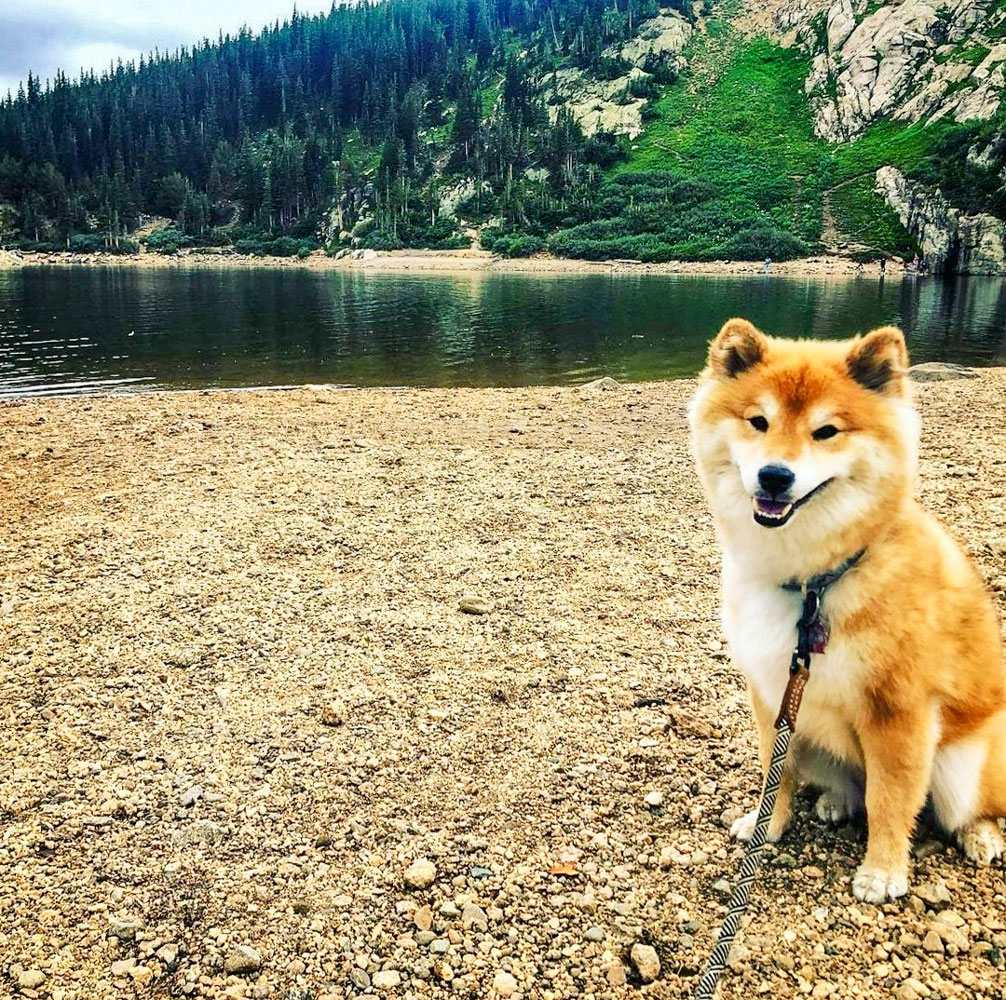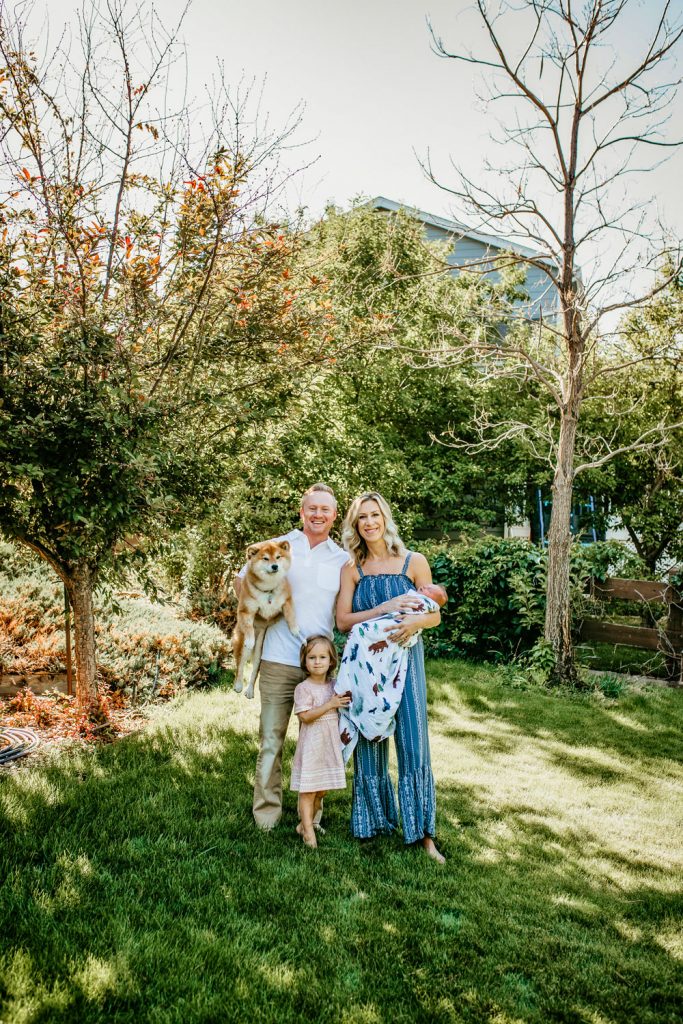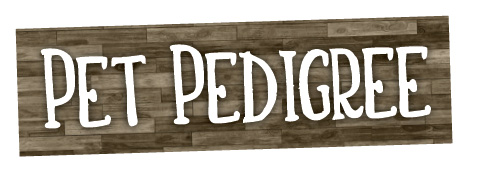The Shiba Inu
By Julie Matuszewski; photos courtesy of Megan Mathis

Kitsune loves to travel. Here he enjoys the tranquility of St. Mary’s Glacier. Other favorite destinations include hiking Big Sur, California and sniffing the wildflowers in Crested Butte. For more fun adventures and photos, visit Kitsune on Instagram @themorningfox.
Castle Pines residents may have crossed paths with “the morning fox” on a neighborhood walk through the community. Not an actual fox, rather Kitsune (Kit), a 5-year-old Shiba Inu, a popular Japanese breed whose name translated to English literally means fox.
The Shiba Inu breed is still fairly rare in the U.S. but is gaining popularity. The breed itself stems from six lines and was nearly driven extinct during World War II and again in the 1950s when distemper, a highly contagious canine viral infection, rampaged through Japan. It is speculated that the breed made its way to the U.S. with a military family in 1954. In 1993, the American Kennel Club recognized the breed.
Castle Pines resident Megan Mathis fell in love with both the breed and her husband Jake while she was teaching English in Tokyo, Japan. At the time, Mathis didn’t know much about the breed other than she thought they were cute and they were everywhere in Tokyo. When Kit made his way into the hearts of the Mathis family, breeders were a bit worried they would be overwhelmed with Kit as first-time dog owners. The breed is highly intelligent. The best advice they received from the breeders was to never let him win. Kit found himself in puppy training, getting accustomed to a crate and socializing with the fellow neighborhood dogs.

Kitsune is more than just a canine member of the Mathis family. In August 2020, Kitsune found himself again to be a big brother. Megan, Jake, Sienna (5) and Kai (3 weeks) love their Shiba Inu as much as he loves them.
Kit received his nickname for his fox-like appearance and his abundance of energy in the morning. Before leaving Japan, Mathis told her students she was going to get a Shiba and name him Kitsune. Many of her students did not like this idea. While the fox is one of the most important animals in Japanese historical culture with religious significance, they are also viewed as a sly and cunning creature known for trickery and having powers of deception. Her students didn’t want to think of the new puppy having the latter qualities.
The Japanese kennel club has a unique way of describing the Shiba Inu temperament with three words: kan-i, ryosei, and sobuku. Kan-i describes the Shiba Inu’s confidence, bravery and boldness which are subsequently balanced with composure and mental fortitude. Shiba Inus may be fierce and fearless without being unnecessarily reckless and violent.
Ryosei, which is the opposite of Kan-i means good natured, loyal, and charming. Shiba Inus have total trust and attachment to their owners. The bond between dog and owner is a very special partnership that will last for the dog’s entire life. It is said that Shiba Inus will only take one master in its lifetime.
Sobuku, the final element of a Shiba Inu’s personality, means simplicity with an open and modest spirit. The Shiba is an elegant dog that has no need to be flashy or loud. Their physical beauty combined with a refined character allows the essence of this magnificent dog to shine through.
Kit’s demeanor shines, not only for the Mathis family, but also fellow neighbors. His youthful glow and ridiculously good looks, leave Mathis feeling like she is walking a dog celebrity. She says when they are out walking residents stop them to ask questions, children see Kit as a stuffed animal, grown men holler out praises, while women want to know where they can get one. If you do find a Shiba Inu, know that they make a wonderful family pet, companion and mountain dog.
Kit has been a wonderful family pet to the Mathis family and is always very patient with their two small children. He is quiet unless his sworn enemy – the mailman – is nearby and then he vocalizes his opinion. He tolerates the occasional tail pulling and poking as the Samurai he is, or he will quietly walk away. Noted Shiba Inu expert Julia Caldwell states, “The characters of these dogs suggest ancient Japanese people – austere, valiant, faithful, good-natured and gentle, and highly affectionate and sensitive to the kindness of their masters.” A partnership with a Shiba Inu will last a lifetime.
